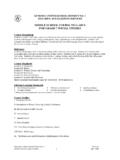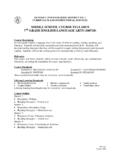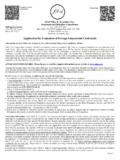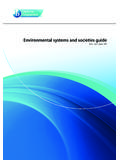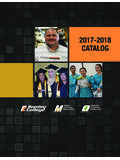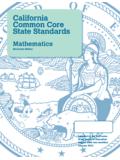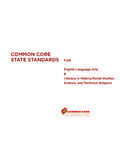Transcription of ISC 2016 ENGLISH - 1 - Guide For School
1 ENGLISH - 1(LANGUAGE) ISC 2016 x 62/87,21 2) x &200(176 2) $0,1(56 x 68**(67,216 )25 7($&+(56 'HGLFDWHG WR DOO P\ ORYHO\ VWXGHQWV 0D\ *RG KHOS \RX DOZD\V 7 KLV VPDOO ERRNOHW FRQWDLQV VROXWLRQ RI ,6& (QJOLVK 3 DSHU /DQJXDJH 7KH FRPPHQWV IURP WKH FRXQFLO H[DPLQHUV XQGHU VROXWLRQ RI HYHU\ TXHVWLRQ PDNHV WKLV D YHU\ KDQG\ JXLGH IRU VWXGHQWV WR XQGHUVWDQG ZKDW WKH FRXQFLO H[SHFWV DV DQVZHU IURP WKH VWXGHQWV , KRSH WKDW WKH VWXGHQWV ZLOO ILQG WKLV WR EH XVHIXO Md. Zeeshan Akhtar VW 'HFHPEHU %/$1. 3$*( ENGLISH PAPER 1 (LANGUAGE)Question 1 Write a composition (in approximately 450-500 words) on any oneof the followingsubjects:[30](You are reminded that you will be rewarded for orderly and coherent presentation of material, use of appropriate style and general accuracy of spelling, punctuation and grammar.)))))]]
2 (a) Describe any three important lessons that you have learnt through the course of your life. How did you learn these lessons and why do you think they are so important? (b) Relate how the reading of literature has enriched and refined you.(c) Every cloud has a silver lining . Express your views on the above statement. (d) Deception.(e) Argue for or against the statement: We live in deeds and not in years .(f) Write an original short story beginning with the following words: The voice was familiar but I could not recognise the Comments of Examiners(a) This was a descriptive topic and attempted by a majority of candidates.
3 It consisted of three parts: (i) to describe three lessons; (ii) how they learnt the lessons; and (iii) why they think the lessons are important. Although most wrote good compositions, many candidates described the lessons but failed to write how they learnt them and why they are so important. A handful of candidates misinterpreted the lessons to mean chapters from their textbooks. (b) This was a narrative topic in which the candidates had to write how the reading of literature had (a) enriched them; and (b) refined them. Only a few candidates attempted this composition.
4 A number of students interpreted Literature as the texts that they studied in class. Suggestions for teachers Students should be trained to read the topic carefully and touch upon all its aspects. Teachers should encourage students to read as much as possible so as to enable them to handle such topics properly. The narrative composition is supposed to be a first-person account and should be handled in that manner. Teachers can introduce common proverbs and sayings to students and get them to write compositions based on them. This will give them enough practice on elaborating on any idea with appropriate anecdotes and (c) Although only a few candidates attempted this topic, most wrote well and were able to get their ideas across very well.
5 However, a small number did not understand the topic and handled it literally.(d) This topic was an expository or one-word topic. It could be handled in any manner whatsoever. The candidates who attempted this topic mostly based their compositions on an incident that they had faced or heard of in life which taught them that man can be deceived in various ways. Some compositions were well-written.(e) There were and treatment of the topic were good. Most compositions were realistic and candidates used well-known examples from history to prove their point.
6 (f) This topic was a short story beginning with a given line. A large number of candidates attempted this topic and answered it well. Most candidates incorporated all parameters of a short story. However, a few centers showed that the students were not used to story-writing and had written narratives instead. Some candidates could not relate the given line to the rest of the story, while some failed to write original stories. Some were outright copies of stories from their Literature text books. MARKING SCHEMEQ uestion 1. General Guidelines:The quality of language employed, the range of appropriateness of vocabulary and sentence structure, syntax, the correctness of grammatical constructions, punctuation and spelling (mentioned in the scope of syllabus) decided the overall grade of the were deducted for gross errors like errors of agreement and number, serious tense errors, wrong verb form, elementary errors of sentence construction, misuse of vocabulary, errors in spellings, punctuation or lack of it.
7 Marks were also deducted for use of incorrect or irrelevant idioms, misuse of pronouns, articles and preposition. Students must be told that single-word or expository topics may be treated in any way possible, even a short story. In such a case, it must follow all parameters of a short story. Teachers should encourage students to take a stand right from the beginning. They should be discouraged from sitting on the fence . Understanding the topic is very important. Anecdotes or examples are necessary to justify one s stand.
8 Students who are in the habit of reading or have a good general knowledge are at an advantage when writing an argumentative composition. Teachers must teach students how to write a short story with the essential components of a short story plot, characters, dialogue, a proper beginning and a logical end. Proper training and practice too is essential on how to begin or end a story if the introductory or ending line is provided in the question, as it was in this particular question. In such a case, the line in question MUST be related to the story, not just tagged on at random.
9 Most importantly, the stories MUST be original. (a) This was a descriptive topic. The candidate was required to describe three important lessons that he/she has learnt through the course of his/her life. He/she had to describe how he/she learnt these lessons and why they are so important. (b) This was a narrative topic. It called for a true account of a personal experience. Candidates needed to write about how the reading of literature has enriched and refined them. (c) This was a reflective topic. The candidates were required to write in some detail how every cloud has a silver lining (one incident/ example).
10 (d) This was a one-word topic. The content had a wider range / scope. All relevant interpretations / approaches were accepted.(e) This was an argumentative topic. Candidates were required to take a definite stand and express it clearly. The stand had to be supported by effective argumentation. Candidates could NOT sit on the fence. Candidates were not to be penalized for holding a view different from that of the examiner.(f) Candidates were required to begin the story with the given words. The story had to be original and not plagiarised or lifted partly or wholly from any source.
